#author: Barbara Davies
Text

"Barbara Deming, Kady Van Deurs, and Jill Johnston, 1973--Writers and Activists" by Diana Davies
source: The Wild Good: Lesbian Photographs and Writings on Love, edited by Beatrix Gates
#lesbian literature#lesbian#dyke#archived#thatbutcharchivist#lesbian books#lesbian history#lesbian photography#the wild good#author: beatrix gates#photographer: diana davies#year: 1996#publisher: doubleday dell publishing group inc.#publisher: anchor books#jill johnston#barbara deming#kady van deurs
22 notes
·
View notes
Text

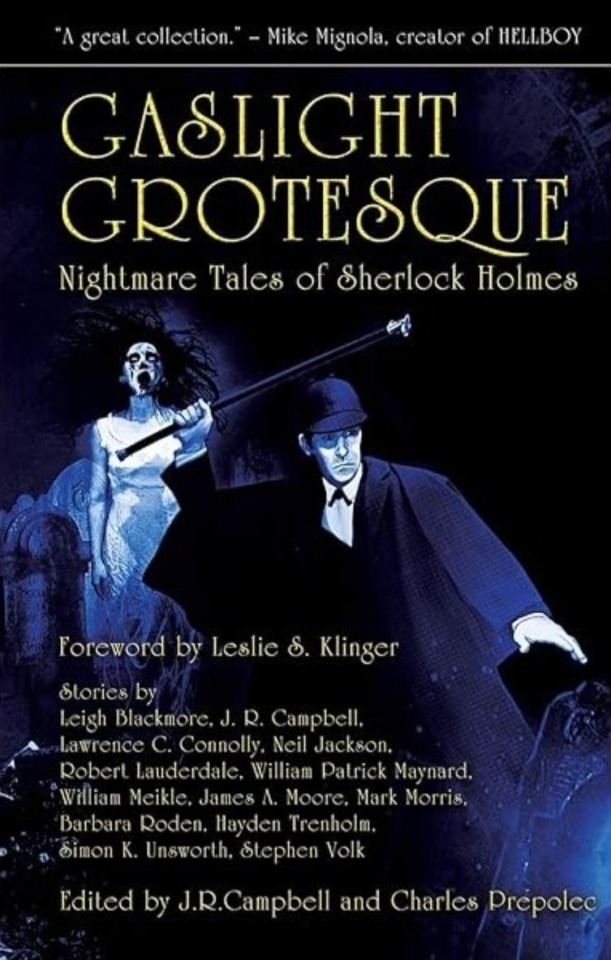


"Gaslight Grimoire" series, including the works of many authors, edited by J. R. Campbell and Charles Prepolec
"Gaslight Grimoire: Fantastic Tales of Sherlock Holmes," "Gaslight Grotesque: Nightmare Tales of Sherlock Holmes," "Gaslight Arcanum: Uncanny Tales of Sherlock Holmes," and "Gaslight Gothic: Strange Tales of Sherlock Holmes."
#sorry for not listing the authors here all love and respect to them theres just like 20 of them#they just have the series all grouped together on there#sherlock holmes#book cover#sherlock holmes pastiche#sherlock holmes pastiches#gaslight Grimoire#horror anthology#horror books#book series#Gaslight Grimoire: Fantastic Tales of sherlock holmes#Gaslight Grotesque: Nightmare Tales of Sherlock Holmes#Gaslight Arcanum: Uncanny Tales of Sherlock Holmes#Gaslight Gothic: Strange Tales of Sherlock Holmes#J. R. Campbell#Charles Prepolec#David Stuart Davies#Kim Newman#Barbara Hambly#Chris Roberson#Christopher Sequeira#Peter Calamai#M. J. Elliott#Rick Kennett#Barbara Roden#Martin Powell#Bob Madison#Chico Kidd#pastiche
7 notes
·
View notes
Text
Books Read and Reviewed in April 2023!
Here it is already the end of another month. Where does the time go? I have been busy as usual reading some wonderful books for the month of April of 2023. Here are the 9 books I read and reviewed for February. I might have read even more if I didn’t have a few WIP. But I always seemed to have a WIP! That fact never stops me! I hope you enjoy reading these reviews.
I love sharing my eclectic…

View On WordPress
#Barbara Davis#book reviews#Books read and reviewed#Jacquie Biggar#Jan Sikes#John Howell#Kendra Elliot#Kitty Johnson#Mark C. Collins#Mike Martin#Monthly reads and reviews#multi-authors#multi-genres#Reading#Sarah Goodwin
0 notes
Text
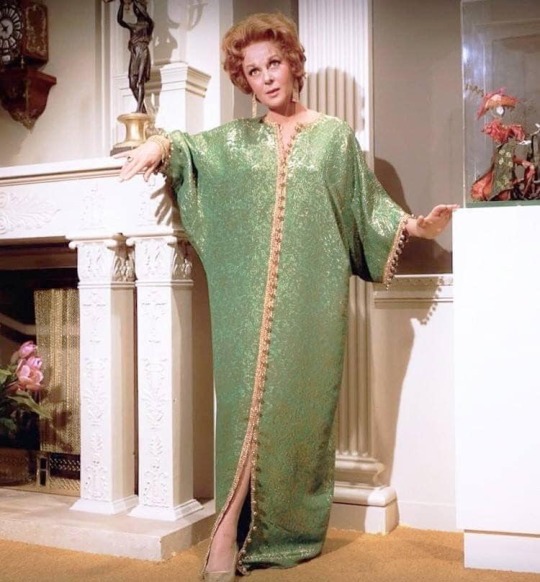
“Susan Hayward is primarily known for her highly dramatic portrayals of alcoholics and murderesses in ‘50s film biographies. She was a pretty, Dresden-doll-like redhead with a penchant for playing aggressive ladies … Hollywood loves this kind of out-and-out “acting” and gave her five Academy Award nominations, culminating in an Oscar for her role as condemned killer Barbara Graham in the 1958 I Want to Live … she was good, gutsy, entertaining fun, and she looks very lovely in her movies, but what she does should not really be labelled good screen acting.”
/ From The Illustrated Encyclopedia of The World’s Great Movie Stars by Ken Wlaschin, 1979 /
Born on this day: fierce screen diva and queen of the melodrama described by author Stephen Rebello as “tempestuous, ferociously competitive, icy, emotionally aloof, utterly professional” - Ms Susan Hayward (30 June 1917 - 14 March 1975). I’d be lying if I claimed she was one of my favourite actresses, but I treasure Hayward’s raspy chain-smoker voice (she reportedly puffed five packs a day) and bravura performances in campy movies like Where Love Has Gone (1964), squaring off against Bette Davis. And with apologies to Judy Garland fans, I revere Hayward’s ultra-abrasive, bitchy drag queen-like performance as sequined and bewigged Broadway gorgon Helen Lawson in 1967 cult classic Valley of the Dolls (pictured). Isn’t it fascinating to contemplate that Hayward was originally offered the role of Mrs Robinson in The Graduate (1967) before Ann Bancroft? I also love that someone wrote a biography about her in 1973 entitled Susan Hayward: The Divine Bitch.
#susan hayward#valley of the dolls#helen lawson#melodrama#lobotomy room#kitsch#camp#lgbtq#bad movies we love#redhead#melodrama mama
11 notes
·
View notes
Note
End of the year book ask! 15, 20 and 24? And Happy New Year! <3
15. Did you read any books that were nominated for or won awards this year (Booker, Women’s Prize, National Book Award, Pulitzer, Hugo, etc.)? What did you think of them?
Several, apparently! Though most of these I didn't realize were prize-winners when I read them.
Demon Copperhead by Barbara Kingsolver (won the Pulitzer for Fiction): FANTASTIC, amazing, loved it. A retelling of David Copperfield in modern Appalachia.
Nona the Ninth by Tamsyn Muir (Hugo nominee): also excellent! I probably should have reread the first two books in the series before reading this one, but it was still wonderful.
Cabin at the End of the World by Paul Tremblay (won the Bram Stoker Award): also LOVED it. Do not judge it by the movie.
Babel: Or the Necessity of Violence: An Arcane History of the Oxford Translators' Revolution by R. F. Kuang (won the Nebula): to break my streak, I hated this one. I felt like it was a 101-level take on imperialism without interesting enough characters to redeem the historical shallowness.
20. What was your most anticipated release? Did it meet your expectations?
Ha, I haven't actually gotten around to reading any of my top 2023 releases yet! That said, I cannot wait for Translation State by Ann Leckie (the next book in the Imperial Radch series), Witch King by Martha Wells (fantasy by the author of Muderbot), Lone Women by Victor LaValle (horror in the Wild West by an AMAZING horror author, one of my favorites), and The Adventures of Amina al-Sirafi by Shannon Chakraborty (middle-aged lady pirates by the author of the Daevabad trilogy).
24. Did you DNF anything? Why?
I have a compulsion to finish anything I start, so I never really admit to DNFing a book; even if I put it down and haven't read anything of it for months, I keep *meaning* to get back to it and finish it eventually, so I don't count it as DNF'ed.
That said, it took me a year to finish The Pirates Lafitte: The Treacherous World of the Corsairs of the Gulf by William C Davis, because it was so boring and also weirdly racist. I also have been taking ages to get back to Better the Blood by Michael Bennett, which is a murder mystery set in New Zealand, but it's so cliche and hackneyed.
Thank you for the questions, and happy new year to you too! <3
book meme
5 notes
·
View notes
Text
""The amount of kelp on the reef changes through time in a way where the peaks and low points in abundance across several kelp forests are matched together," said lead author Jonathan Walter, a senior researcher at the University of California, Davis, and its Center for Watershed Sciences. "That's what we refer to as synchrony. It is related to the ability of systems to persist in the face of changing environmental conditions. A little asynchrony allows systems to be resistant to fluctuations and therefore more stable."
The study uncovers the role of synchrony in the beach food web, with broader implications as the climate shifts in ways that might change how linked ecosystems perform their functions.
Revealing synchrony's role in these ecosystems fills a key knowledge gap in our understanding of the connection of reef and beach.
"The kelp forest and the beach are both highly dynamic ecosystems," said co-author Jenny Dugan, a coastal marine ecologist at UC Santa Barbara. "How the dynamics of those two ecosystems interact and behave is the key question here, especially with the beach system so dependent on the kelp forest.""
"Though a natural and ubiquitous phenomenon, synchrony and its implications are not yet fully understood."
continue reading article
#nature#ocean#sea#beach#seakelp#ecosystem#food chain#food web#biology#life#synchronicity#cycles#dynamic#energy#environment#climate#push and pull#expansion and contraction#holistic#earth#magnetic field
2 notes
·
View notes
Text
Riverdale Characters: Townsfolk

Terry “Pop” Tate - owner of the chock’lit shoppe
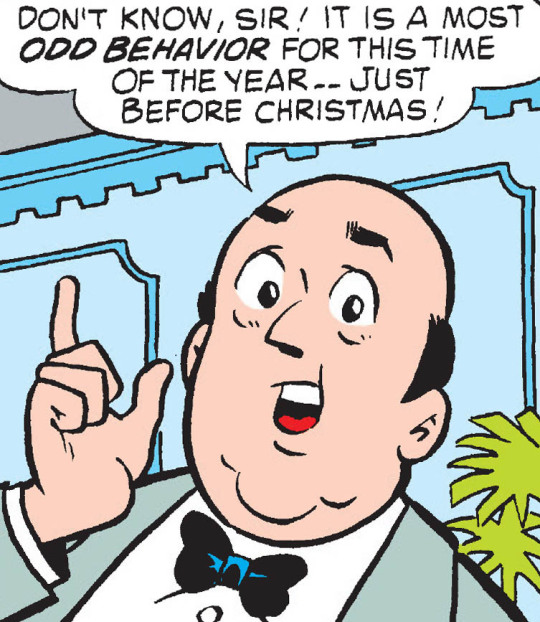
Hubert Smithers - butler of the Lodge family
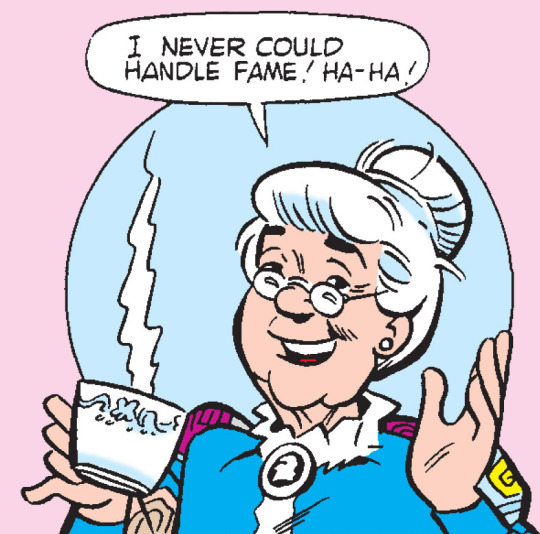
Lydia Wyndham - author of Blooming Blossoms; Betty’s neighbor
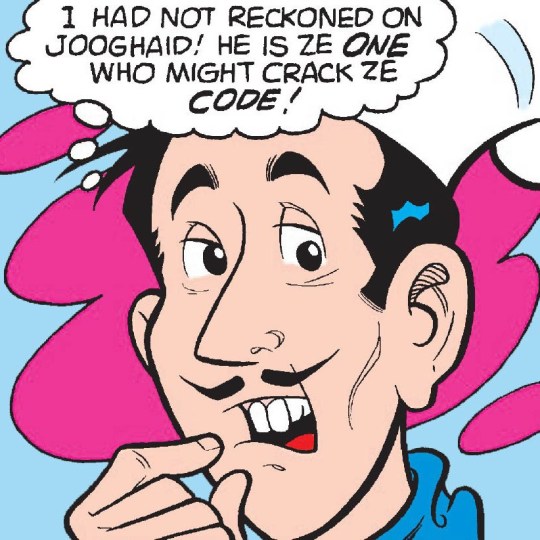
Pierre Gaston - chef of the Lodge family
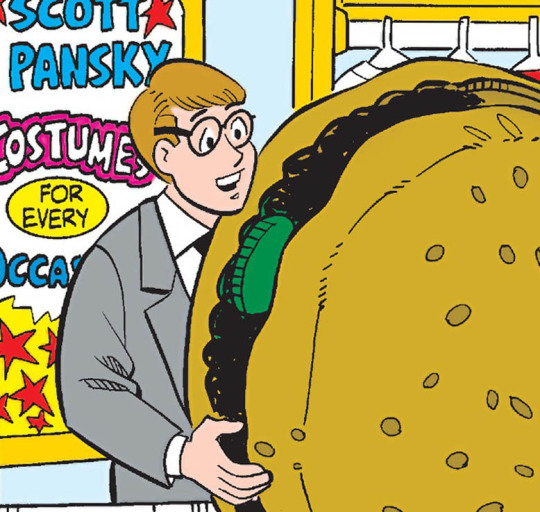
Scott Pansky - owner of the costume shop
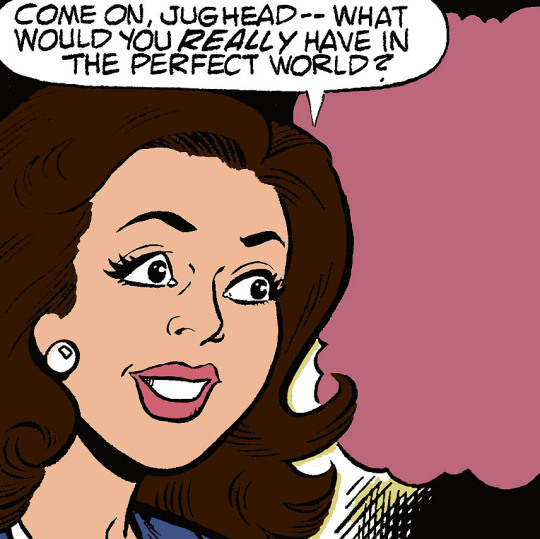
Dr. Sara Bellum - psychiatrist of Jughead

Chef Segarini - owner of Segarini’s Pizzeria; Pop Tate’s rival

Cromwell - the Lodge family chauffeur

Mindy Munowitz - Jughead’s crush who works as a dental assistant

Dexter Howard - WPBJ TV cameraman who dated Betty

Steve Moleback - Betty’s crush who works at a father’s plant nursery

DeDe Cruz - temporary PEP Comics employee who likes Jughead
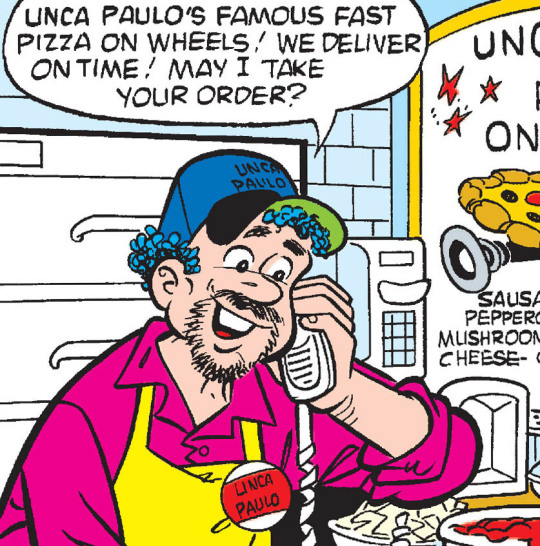
Unca Paulo - owner of a pizzeria; Archie’s boss

Mayor Fodsnik - mayor of Riverdale
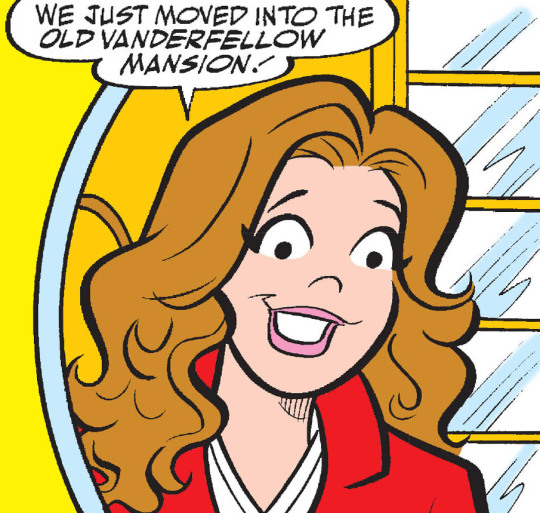
Barbara Bentley - new neighbor of Veronica
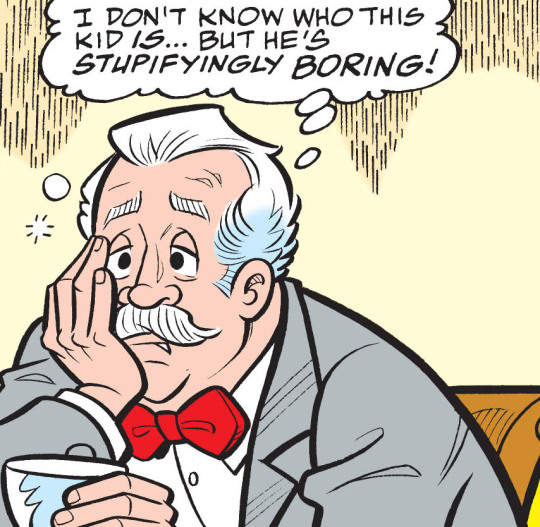
Eaton Grubb - famous food critic who loves Pop Tate’s burgers

Al the Caterer - owner of Al’s Catering; Jughead and Archie’s boss
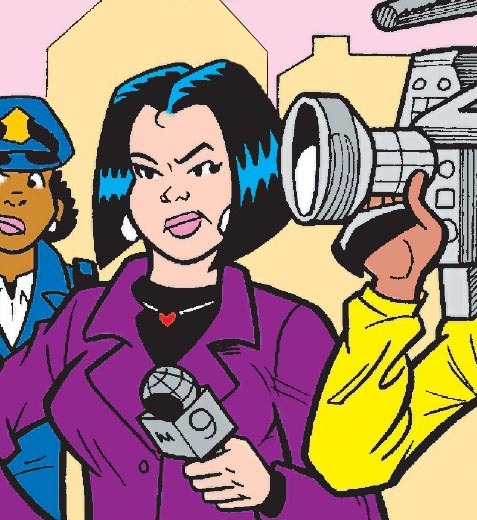
Brenda Lin - reporter at WRIV TV
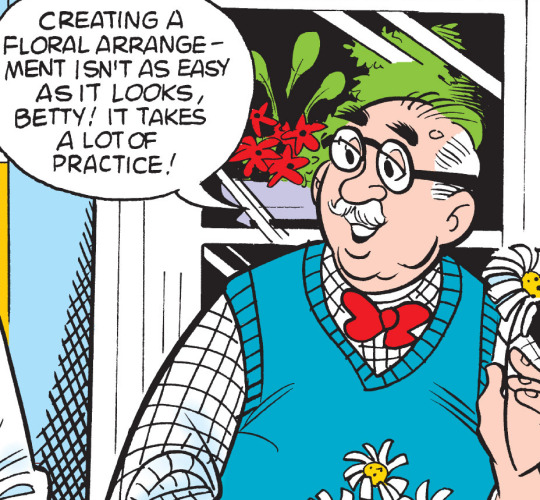
Mr. Elm - owner of the flower shop
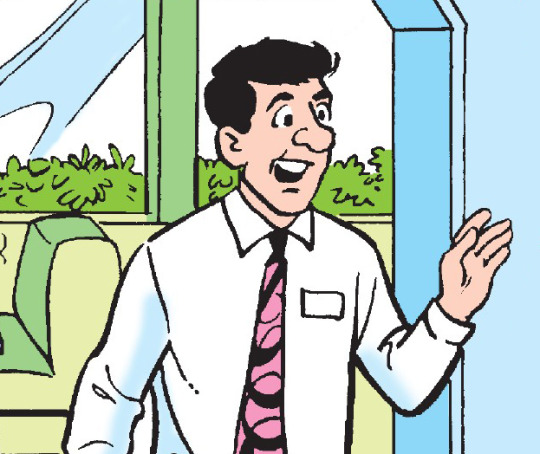
Mr. Davis - manager of the Tea Room; Betty’s boss
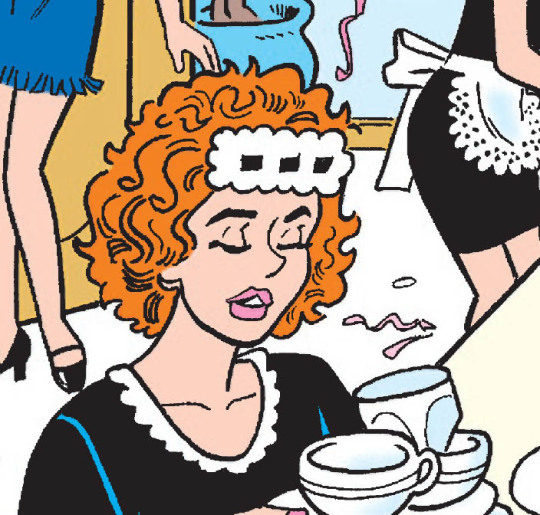
Fifi - personal maid of Veronica Lodge
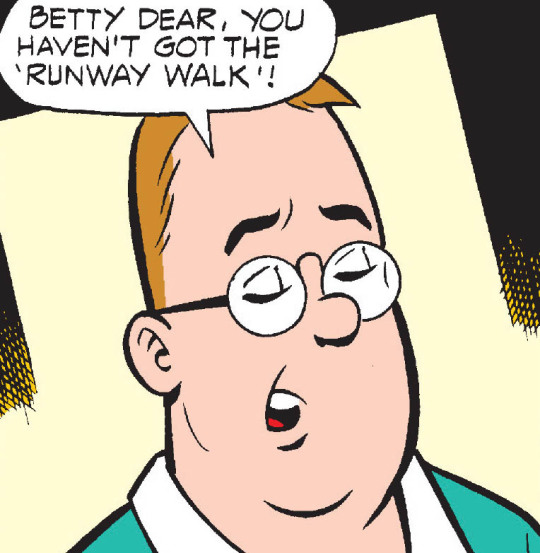
Mr. Spif - trainer of aspiring models
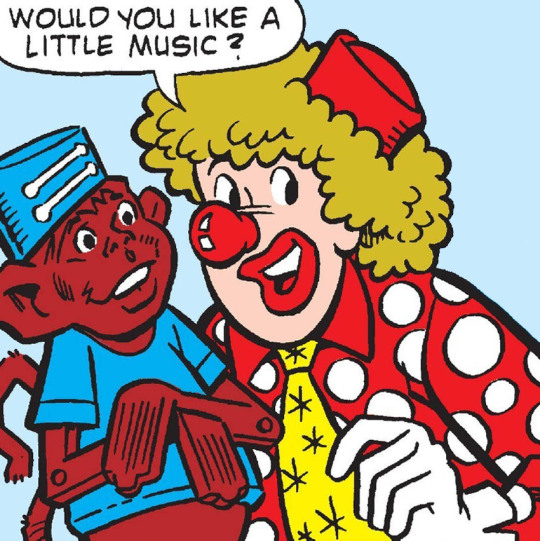
Dr. Jester - pediatric dentist who likes to dress up as a clown

Ms. Molar - receptionist at Dr. Acherman’s dental clinic

Mr. Plyer - contractor who usually works for the Lodge Family

Mr. Milkweed - steadiest customer of Pop’s chock’lit shoppe
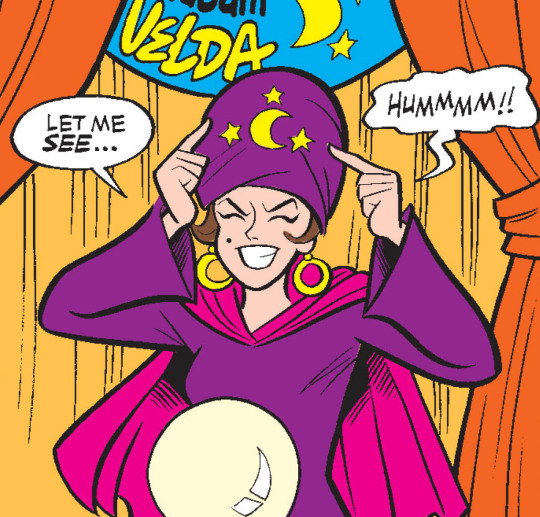
Madam Velda - the self-proclaimed best psychic in town
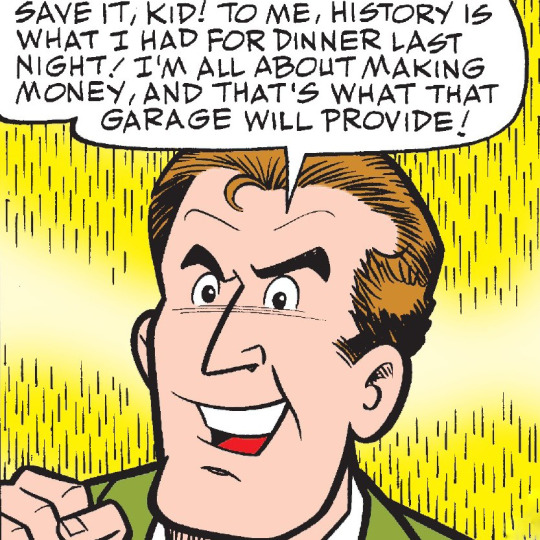
Godfrey Ghecko - real estate impresario who hates history

H.M. Bugg - business tycoon who hates Christmas
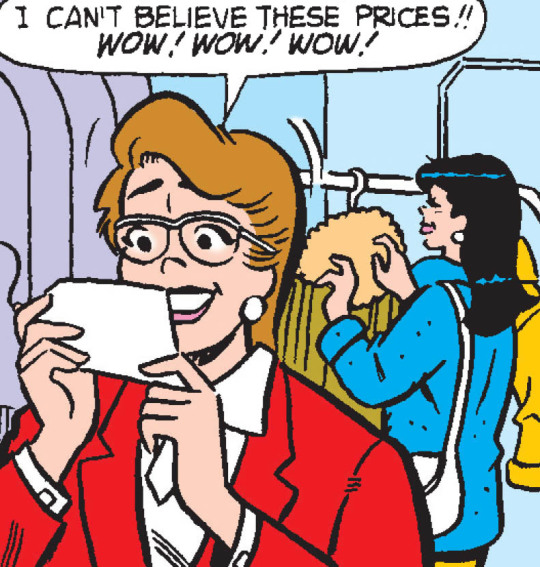
Miss Brissy - expert in compulsive shopping therapy

Tony Weatherbee - owner of Weatherbee’s Wheels; Waldo’s brother
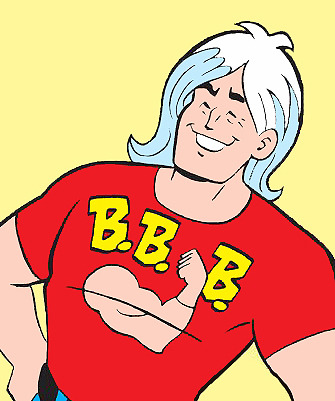
Bruno Beazley - owner of Beazley’s Better Bodies; Bernice’s husband
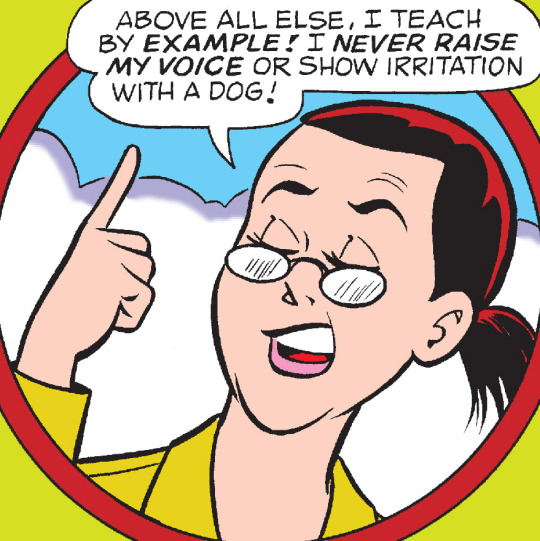
Seta Upenbeg - dog whisperer who tries to “train” Hot Dog

Mozart Myers - rhythm doctor hired to teach The Archies about harmony

Mr. Moleback - owner of the plant nursery; Steve’s father

Mrs. Turner - mother of the Turner twins; Betty’s babysitting client
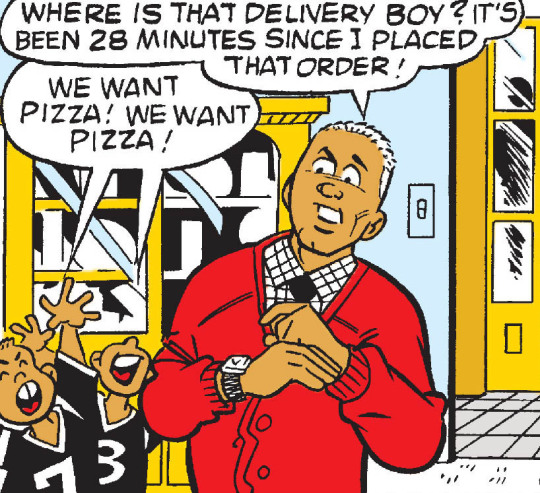
The Riverdale Chief of Police with his twin boys
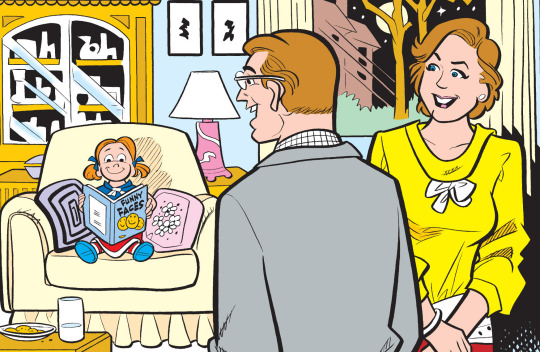
Mr. and Mrs. Johnson with their daughter Emily - Betty’s clients
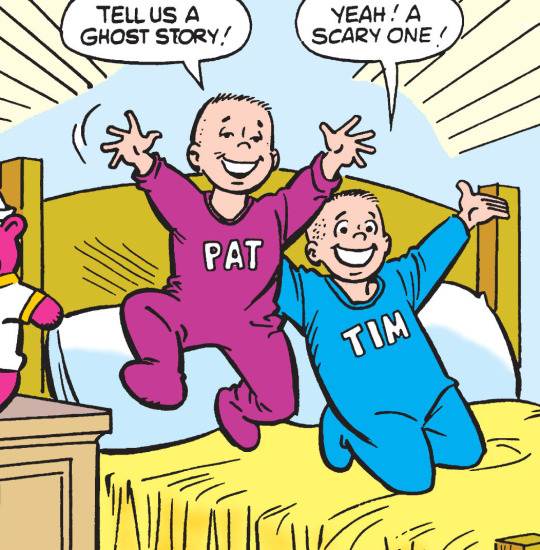
Pat and Tim Kennedy - Betty’s regular babysitting clients

Eddie and Freddie Turner - Betty’s regular babysitting clients
10 notes
·
View notes
Text
a journal type post
i visited some of my grandparents today. I'll give their names, Jenny and Rick, since i doubt that's enough to be PII and it's hard to talk otherwise.
i haven't been able to see them in a long time, thanks to the pandemic. Rick is... likely pretty close to dying, and Jenny is also definitely struggling at this point.
of my four grandads (lots of divorcing and remarrying on both sides of the family) Rick was always the one that i had the hardest time with. he would be brusque and overbearing at the best of times, and cross lines at the worst, and the older i got i felt like he really stifled my granny, in their very traditional middle class marriage. but he's mellowed out a lot (both of them have really), and i found it much easier to spend time with him today, despite a ton of other stuff weighing on me.
we got to talking about books. it's funny, this is something I've never thought to connect with him on, even though he evidently reads a lot. he was very happy to tell me about his favourite authors, in a way that was so sweet and like. i honestly quickly lost a lot of that resentment i had felt towards him in the past. so i went home with my arms full of RF Delderfield and Barbara Erskine, and this prompted my granny to add on her favourites by Katherine Lynn Davis.
they're all historical novels of one sort or another, a long way outside my usual zone of literature. Delderfield writes about long duration social history revolving around the British people going through social change, his central character usually a young man returning from a war. at my age, my grandad had just left the RAF - i don't believe he fought in WWII, it might have been the period when National Service (conscription by another name...) was still in effect after the war and the UK geared itself up for the Cold War, but he stayed in for twelve years, apparently not enough to get a pension, leaving due to some kind of complications around a divorce that I didn't quite follow. he became a salesman - selling cardboard boxes I think? there's a lot I'm vague on. anyway, he's very fond of Delderfield, and it has something to do with Delderfield's prose, the particular feeling of Englishness it gives, but also the historical details - one of Delderfield's series charts the rise of motor transport in the UK, which I won't lie, I'm easily enough of a nerd to be curious about.
Erskine's books seem to follow a different template. just going by the blurbs, the general structure seems to be that a young woman in modern England is haunted by a connection to another woman a thousand years in the past, suffering under court politics or the witch trials or similar. so again, the theme of the past bearing on the present. Davis, i only have a couple of books so can't generalise, but this one's about three women from different parts of the world (Scotland, China and India) drawn together for a lot of high drama in the 1800s. the sequel seems to be about their descendants. it could be really cool or it could be awkwardly racist or it could be awkwardly racist but still interesting as an artefact of a time (...the late 80s), who knows. and this is all just... cursory examination of the blurbs.
all of these books are full-on doorstoppers. they're also... completely unknown to me, which is probably an indictment of how narrowly i tend to stick to my genre. not that there's a moral obligation to read widely, but it's good to be aware at least. anyway...
I kind of wear on my sleeve that my feelings about "Englishness" and "Britishness", the egregore, the entity that lays claim to me, are very negative. today I also watched an episode of the new BBC show about the founding of the SAS, with snappy action movie dialogue and expensive CGI and a pointedly anachronistic classic rock soundtrack, with the depressing feeling you get when you watch well executed propaganda. hard not to think about the release of this piece about the sacrifices of a roguish, brave, witty SAS coinciding with an ailing farce of a Conservative government and the death of the one (inexplicably) well-loved symbol of the British state, all that jazz. (coincidences - this had to have been in the works for some time - but still).
anyway. so... the idea of the spirit of the British people is liable to make me break out in a rash. don't tell me about that, tell me about the idea of "britishness" being replicated forcefully through history, imposed on successive generations, an eternal reproductive futurism motivating all manner of atrocity. so i feel like... if what people say about Delderfield is true, I might find it... challenging.
i am nevertheless curious about all three of these authors! not just a way to connect with my grandad in what could easily be his last year on this planet, though there... there is that. but also that social history angle... for all my bluster about how much I dislike this country, it's more that I dislike the idea of countries altogether, and having to belong to one. and on some level, a severe case of don't-lump-me-in-with-them-ism. knee-jerk anti-patriotism.
but reflexive loathing is no more revealing than comforting fantasies of national character. both of them assume a 'thing' into existence. finding loopholes to be like... well i like such and such British author but I have a defence of how they're acceptably critical of the country so it's ok, that's cheap.
what I do like is having at least some idea of how things got to be the way they are. I can't help being from here, so I could at least stand to understand 'here' a little better. around a decade ago, I walked back from Exeter's gender identity clinic with an older trans woman who could tell me when a bridge was made by looking at its materials. that's so neat that I still remember it! in the garden of the shared house in London where I rent a room was a stone disc with icons of the USSR on it. why was that there? the weight of the machine of history is overwhelming, Marx was right to call it a nightmare, but it is interesting. you can't just stop at 'this sucks'.
so if the ways of thinking that prevailed in the past were very different, they certainly aren't unrecognisable; it does no good to try to set myself above them and imagine I'm more enlightened. and like, that's just all my baggage anyway. i don't want to be unfair to any of these authors, and miss what my grandparents valued in them. (I'm too tired to look up Engels but I recall he had something interesting to say about a well written bourgeois novel.)
anyway, like i said, they're doorstoppers, and i still have like a third of Worth the Candle to read, so don't expect detailed comments for a little while. but it was eye opening in a way, it's too easy to remain blinkered in your little corner and box off the rest as something you'd have no interest in. i know where I'm at with sff and comics, but on some level i find the 'general fiction' shelves intimidating, with no idea where to start or the codes being deployed, and that's limiting. anyway I'll let you know what i think. eventually.
16 notes
·
View notes
Note
I need new books to read this year... can you recommend your favourite history books? Any era/subject pre-1900!!
Oh, boy! Fun. Okay - !
One of the best historical writers I've ever read is Barbara Tuchman. Not only is her research top-notch, she can also pull you along like a story. A lot of her books are about the 20th century, but A Distant Mirror is about the 14th century, an absolutely wild 100 years of warfare and social upheaval and - of course - a heaping helping of Yersinia pestis.
One of my professors when I was working on my first degree (in history) was Dr. Carole Rawcliffe. She is one of the experts on the history of medicine, and her Medicine and Society in Later Medieval England is an excellent read despite the rather dry title.
Another absolute classic along those lines is by William Manchester. Like Tuchman, he's better known for his books on the 20th century, but he wrote an excellent book about the transition from the Middle Ages to the Renaissance. A World Lit Only by Fire is considered a historical classic for good reasons!
Another I thoroughly enjoyed - and then I'll leave the Middle Ages, I promise! - is Chris Wickham's The Inheritance of Rome, about the first 600 years after the fall of the Western Roman Empire.
Thomas Cahill - who unfortunately recently died - wrote a ton of books on lesser-known people/places in the historic record, but my favorite by him is Sailing the Wine-Dark Sea, a wonderful little glimpse into Ancient Greece. His other books are good as well (the ones I've read, anyway), but that was the one I liked most.
Robert K. Massie is probably best known for his classic Nicholas and Alexandra, but he also wrote an amazing book about Peter the Great (literally called... Peter the Great) about the tsar who dragged Russia kicking and screaming into being a more "European" culture. St. Petersburg, the city he founded to be closer to European neighbors, is named for him.
Late Victorian Holocausts by Mike Davis is a very rough read, but also an important one. It looks at how colonial rule in the late 1800s impacted the colonized lands, particularly India. It's brutal, but well worth a read. Along the same lines, King Leopold's Ghost, by Adam Hochschild, looks at the impact of colonial rule in the Congo.
John Keay has written extensive books on the history of China and India. I haven't read the one about India, but the one on China is superb.
A History of Private Life (various authors) is a 5-volume set covering the Classical period up to the modern day. It's more academic than the pop history I've mentioned so far, but fascinating. I love thinking about everyday lives far more than a list of important names and dates, y'know?
A People's History of the United States (Howard Zinn) and Lies My Teacher Told Me (James Loewen) both well earn their reputation as the books criticizing the way American history is learned in the US. They cover a lot of ground before 1900, but do go into the 20th century. I'm not super into US history, but The American West and Bury My Heart at Wounded Knee (both by Dee Brown) are very good. (If you're familiar with the fictional Lonesome Dove, the Goodnight-Loving trail covered in The American West is the inspiration.)
The Eternal City by Ferdinand Addis is one of the few English-language books that covers Rome beyond the ancient empire and WWI. I'm a little biased towards Rome these days (and spend a whoooooole lot of time there 😅), but I promise the book is good! 😉
After the Ice (Steven Mithen) and Eve's Seed (Robert McElvaine) are both looks at truly ancient history, and well worth a read. (Full disclosure, McElvaine was also one of my professors.)
Rabid by Bill Wasik and Monica Murphy is a history of - you guessed it! - rabies. It's both eminently readable and terrifying, as you could probably guess. Plagues and Peoples by William McNeill more broadly covers epidemics through the years.
Some interesting and more obscure topics: Death by Drama and Other Medieval Urban Legends (Jody Enders) is more academically dry than the title suggests, but still very interesting! Madame Blavatsky's Baboon (Peter Washington) is about the rise of spiritualism in the 19th century. Lucy's Bones, Sacred Stones, and Einstein's Brain (Harvey Rachlin) looks at the history of culturally-important artifacts. And along those lines, there's always learning a little more about the people who dealt with such artifacts, like Gertrude Bell in a book by Georgina Howell (literally just titled Gertrude Bell).
A few other favorites: The Victorians (A.N. Wilson), A Gentle Madness (Nicholas Basbanes; it's about the history of book collecting), The Tudors (G.J. Meyer), Medieval Lives (Terry Jones), and Blood and Roses (Helen Castor, using the Paston Letters as a central theme in a broader history of the Wars of the Roses). (When I was in England, I lived where the Pastons did.) And just thought of another: Nabokov's Butterflies (Rick Gekoski) is a nice little collection about authors and books.
Oh! And The Lion in the Living Room (Abigail Tucker) is great fun - it's a history of cats!
With a few exceptions, these are pretty broad overviews. If you'd like anything more specific, let me know!
(For fascinating, well-written-but-not-always-factually-sound takes on history, Bill Bryson's A Short History of Nearly Everything and At Home are both great reads, but... don't accept everything he says as fully true and accurate. The same is true of Daniel Boorstin [The Discoverers, The Creators, The Seekers] - really great reads, but flawed.)
(If you want fiction that gets the history right: The Daughter of Time [Josephine Tey; covers late 15th century England], The Crimson Petal and the White [Michel Faber; covers the 1870s in England - but be warned, there's some graphic sex in it], Doomsday Book/To Say Nothing of the Dog/Blackout/All Clear [Connie Willis; cover - in order - the 14th century, 19th century, and WWII in England), Pachinko [Min Jin Lee; it's 20th century, but about Koreans in Japan, which I knew almost nothing about before reading], The Luminaries [Eleanor Catton; 19th century New Zealand], and the aforementioned Lonesome Dove [Larry McMurtry; 19th century US] are all excellent reads as well! Oh, and Hilary Mantel's books about Thomas Cromwell in 16th century England [Wolf Hall/Bring Up the Bodies/The Mirror and the Light] well deserved the awards showered on them, including two Booker Prizes. The Inquistor's Tale [Adam Gidwitz] is a book for kids and has magic, but it's super cute, well-written, and fun. Plus it has Guinefort, the only dog to become a saint! [Well... unofficially a saint.] I've recently gotten The Books of Jacob [Olga Tokarczuk], so haven't read it yet, but it's set in 18th century Poland and the author won the Nobel Prize in Literature! Speaking of good research and heaps of awards: Adam Johnson's The Orphan Master's Son is phenomenal. It's set in modern North Korea, but I'd still count it, especially as it covers a place many people know little about. In the same vein, Anthony Marra's A Constellation of Vital Phenomena does the same for modern Chechnya.)
Hope something piques your interest! Happy reading! 😁
14 notes
·
View notes
Text
BY CHAUNCEY DEVEGA
Ron DeSantis is not a "mini-Trump" or some other diminutive. He is much more dangerous. Donald Trump has no "ideology" beyond megalomania and a deep desire to be an American god king. By comparison, DeSantis is far more intelligent and devious; he is an ideological fascist and racial authoritarian.
In a recent essay at Raw Story, Thom Hartmann summarized the danger to American democracy and society embodied by DeSantis:
Historians and political observers have been predicting that America would get our very own Mussolini ever since the days of Barry Goldwater. And there's been no shortage of candidates: bribe-taking Nixon; Central American fascist-loving Reagan; Gitmo torturing and war-lying Bush; and, of course, Trump.
But with Ron DeSantis, we may finally be facing an all-American politician who has Mussolini's guile, ruthlessness, and willingness to see people die to advance his political career, all while being smart and educated enough to avoid the easily satirized buffoonishness of Trump.
DeSantis and other Republican fascists have proclaimed Florida to be a bastion of "freedom" and "liberty." In reality, Florida is now a laboratory for fascism. As part of his authoritarian project, DeSantis is enforcing thought crime laws that forbid the teaching of AP African-American studies in high school and other courses and programs across Florida's school system (including at the college and university level) that examine questions of power, race and systemic inequality. DeSantis and his agents recently declared that the AP African-American studies course was inappropriate and will not be taught in Florida's schools because it has "no educational value" and is "indoctrinating" (white) young people. DeSantis and his regime's thought crime attacks on African-American studies are Orwell's "1984" meets "Birth of a Nation."
The purpose of DeSantis' thought crime laws is to intimidate and terrorize all teachers, educators, librarians, and others who are committed to education, critical thinking, and the truth in Florida (and beyond). In DeSantis' Florida — and soon to be across "red state" America if he and the other fascist Republicans get their way — there will be censors who review books and other material for thought crimes and other "dangerous" ideas that are contrary to the interests of conservatives. These censors and party officials and their designated agents will also rewrite history – and reality itself – to fit the demands of the regime. The public will no longer be able to discern truth from lies and fantasies from facts and fiction. The subversion and destruction of reality, facts, and the truth are a precondition for, and one of the primary ways that fascist and other authoritarian regimes obtain and keep power.
DeSantis' goal is to make America into a new Jim Crow Christofascist plutocracy. Donald Trump and Trumpism were just intermediate stops on that evil journey.
This is the power of censorship: people quickly learn to police their own behavior and that of their family, friends, neighbors, and yes, strangers. The public's intellectual, creative, ethical, and moral lives quickly become impoverished. The result is the ideal fascist authoritarian subject: a compliant person who does not resist.
Here is a partial list of the dozens of scholars, authors, and other public thinkers whose work has now been declared "illegal" and a "thought crime" by DeSantis and his agents and subsequently marked for removal from the AP African-American Studies course:
Kimberlé Crenshaw
Angela Davis
bell hooks
Ta-Nehisi Coates
Keeanga-Yamahtta Taylor
Nell Irvin Painter
Manning Marable
Cathy Cohen
Henry Louis Gates, Jr.
James Cone
Nikki Giovanni
Barbara Fields
These are not just names on a banned books list. These are real human beings who are committed to helping the public and their students be engaged and responsible members of a larger community and to develop critical thinking skills that they can use to challenge and interrogate Power with the goal of making a better, more just, and truly democratic society.
I personally have interviewed, been in dialogue with, enjoyed the company of, had meals with, or otherwise interacted with a good many of these "banned" authors and scholars. I and many others have greatly benefitted from their scholarship, wisdom, time, and concern.
Why are DeSantis and his agents (in Florida and across the country) targeting African-American studies and other such programs?
There are many reasons.
The Black Freedom Struggle is one of the most successful pro-democracy resistance movements in American (and world) history. DeSantis and the other Republican-fascists and their forces do not want these lessons to be known, learned, or otherwise disseminated. DeSantis is working to create a type of "regime of knowledge" where Black, brown and other marginalized people's triumphs and experiences are outright erased and/or grossly distorted as a way of literally removing their personhood and existence. History has repeatedly shown that "thought crimes," banned books and other forms of intellectual violence are precursors to and do the work of interpersonal and intergroup violence on a large scale by the State, and those empowered to act in its name, against those deemed to be "the enemy."
In all, Power intersects with and is an extension of knowledge production. And knowledge is not "neutral." Philosopher Michel Foucault explained as much. "There is no power relation without the correlative constitution of a field of knowledge, nor any knowledge that does not presuppose and constitute at the same time power relations." Foucault also explained that "Truth is linked in a circular relation with systems of power which produce and sustain it."
DeSantis attended Yale for his undergraduate degree. In all likelihood, he encountered the work of Foucault during his studies there. Now DeSantis is putting Foucault's powerful insights to work in ways contrary to their original intent.
In a recent interview at The New Yorker, contributing writer Keeanga-Yamahtta Taylor spoke with historian Robin D.G. Kelley about DeSantis' thought crimes regime and the targeting of African-American studies. Both Professor Taylor's and Professor Kelley's work was purged from the Advanced Placement African-American studies course. Kelley's comments merit being quoted at length:
There's two levels. One is that it's about Ron DeSantis possibly running for President. I think that's the most important thing, because, no matter what we think about DeSantis and his policies, we know he went to Yale University, and majored in history and political science with a 3.7 G.P.A., which means that he was at one of the premier institutions for history. That's why I get frustrated when people say he needs to take a class. He took the class. He knows better. He knows that the culture wars actually win votes. He's trying to get the Trump constituency.
So I think this is about Ron DeSantis wanting to run for President. But I also think that the focus on Florida occludes a bigger story. As you know, this goes back to the Trump years—well before Trump, but let's just talk about the Trump years—the attack on the 1619 Project, Chris Rufo's strategy of turning critical race theory into an epithet by denying it any meaning whatsoever. And creating a buzzword. That's actually a strategy that has nothing to do with the field of African American studies; it has everything to do with vilifying a field—attacking the whole concept of racial justice and equity. So, to me, if DeSantis never banned the class, we would still be in this situation. And although it is true that a number of states did accept the pilot program for the A.P. class, some of those same states have passed, or are about to pass, laws that are banning or limiting what they're calling critical race theory. So there is a general assault on knowledge, but specifically knowledge that interrogates issues of race, sex, gender, and even class.
It's an ongoing struggle to roll back anything that's perceived as diminishing white power. They want to convince white working people—the same white working people who have very little access to good health care and housing, whose lives are actually really precarious, as they move from union jobs to part-time, concierge labor to make ends meet—that somehow, if they can get control of the narrative inside classrooms, their lives would be better. Racism actually damages all of our prospects and futures.
I don't think it's an accident that the people who are targeted are you, Angela Davis, myself, bell hooks. To say that we're not radical would be a lie. What does radical actually mean? What it means, what Black studies is about, is trying to understand how the system works and recognizing that the way the system works now benefits a few at the expense of the many. It's easy to allow someone to come in, in the name of Black studies, and say, "We're going to talk about ancient Africa, and the great achievements of the Kush of ancient Egypt." That's not a threat—not as much as the idea of critical race theory saying that, no matter what policies and procedures and legislation are implemented, the structure of racism, embedded in a capitalist system, embedded in a system of patriarchy, continues to create wealth for some and make the rest of our lives precarious. Precarious in terms of money, precarious in terms of police violence, precarious in terms of environmental catastrophe, precarious in many, many ways. And I think people could agree with me that that's why we do this scholarship: because we're trying to figure out a way to make a better future. You know, that's the whole point. And if that's subversive, then say it, but it's definitely not indoctrination, because indoctrination is a state that bans books.....
[T]he subject of African American studies, even before it was called that, has been not just the condition of Black people but the condition of the country. And not just narrating that oppression and understanding it, and not just trying to think about ways to move beyond it—to transcend it, to come up with strategies to try to live—but also understanding what's wrong with this country, with the system.
We're not just interrogating our lives, we're interrogating knowledge production itself.
Dangerous thinking is a good thing and those with power want to socialize us into learned helplessness so that we will not see (and achieve) the radical possibilities of a true social democracy.
Years ago, when I was in high school and then college, I was lucky enough to have very generous teachers who took me on trips to conferences and other events at leading universities and institutions such as the Schomburg Center for Research in Black Culture. In fact, I was very lucky to have attended several conferences where Yosef Ben-Jochannan ("Dr. Ben"), who was one of the founders of African Studies, was the featured speaker. Those years that saw the Million Man March(es), debates about the merits of multiculturalism, diversity and "affirmative action" at America's colleges and universities, boiling ethnic, racial and class tensions in Los Angeles and New York's Crown Heights and Howard Beach neighborhoods (among others), the golden age of Hip Hop Music and Culture, and so many other political and cultural formations and events. It would be an understatement to say that those years were quite an exhilarating time to be a young black politically engaged person in America.
In so many ways, I am very much a product of that time period.
I learned that I have no taste for racial chauvinism; such beliefs are the mind killer. I also came to the conclusion that American and Western society is profoundly sick with white supremacy and racism. Those forces will likely bring the ultimate destruction of American society and its so-called democracy.
A more humane and good society are possible if we want it badly enough on both sides of the color line. Racism and white supremacy are a choice. America is structured around such forces and too many white Americans and others are deeply invested in such an arrangement of things -- even if it causes them great harm. DeSantis and the larger white right are using thought crimes and other tools of censorship and intimidation as weapons to limit how we conceptualize freedom, democracy, justice, and the boundaries of the possible. DeSantis and those of his ilk wouldn't be trying to ban books and authors (and by implication whole groups of people) if they were not deeply afraid of them – and the possibilities of achieving a more democratic and free and humane society.
#us politics#news#op eds#salon#2023#florida#gov. ron desantis#conservatives#republicans#gop policy#gop platform#gop#fascism#fascists#raw story#Thom Hartmann#ap african american studies#christofascism#Michel Foucault#Keeanga-Yamahtta Taylor#Robin D.G. Kelley#Yosef Ben-Jochannan#Chauncey Devega#critical race theory
15 notes
·
View notes
Text
Federal regulators are being pushed to investigate whether Elon Musk deceived investors in his brain-chip startup Neuralink by omitting details about the gruesome deaths of at least a dozen animals who were surgically fitted with its implants.
Four members of the US House of Representatives today alleged that Musk issued false statements in September regarding the deaths of 12 macaque monkeys, the subjects of experiments at a primate center in California between 2018 and 2020, according to a letter obtained by WIRED.
The lawmakers have urged Gary Gensler, head of the Securities and Exchange Commission (SEC), to initiate a probe into whether Musk committed securities fraud by glossing over the lethal aspects of Neuralink’s tests—a potential violation, they claim, of an SEC rule designed to shield investors from material omissions and misstatements linked with the purchase or sale of a security.
Musk, in September, claimed in a post on X (formerly Twitter) that no animal test subjects died as "a result of a Neuralink implant,” adding that the company strove early on to “minimize risk to healthy monkeys,” choosing only those who were “close to death already.”
“Mr. Musk knows this statement is false,” the lawmakers told Gensler, a former Goldman Sachs investment banker turned Wall Street sheriff.
The lawmakers’ push to see Musk investigated is spearheaded by US representative Earl Blumenauer from Oregon. As of Wednesday, three additional Democrats had joined the effort, including Barbara Lee, James McGovern, and Tony Cárdenas.
A WIRED investigation this year shed serious doubt on Musk’s animal welfare claims, finding that several macaque monkeys who’d been experimented on suffered greatly before their deaths, anguish that was prolonged in some cases to help Neuralink gather data following its surgeries. Veterinary records obtained by WIRED show many of the fatalities resulted directly from surgical complications linked by employees of the California National Primate Research Center to the implant procedure.
A former employee told WIRED this year that Neuralink's animal test subjects could not have been "close to death,” as Musk had claimed. The animals routinely underwent years of training in advance of the procedure, they said. In one experiment, a piece of a Neuralink device “broke off” during implantation, an autopsy report says, causing a fungal infection. In another, a Neuralink implant left a portion of a monkey’s cerebral cortex “focally tattered.”
“The idea that these were terminal monkeys is ridiculous,” a former Neuralink employee told WIRED. “We had these monkeys for a year or so before any surgery was performed.” (Neuralink did not respond to WIRED's request for comment at the time.)
The lawmakers’ letter to the SEC claims the animals’ deaths are directly related to the safety and marketability of Neuralink’s brain-computer interface. It is critical, they say, that investors in the company be provided with accurate information. The minimum investment accepted by outside parties is $14,995, SEC filings show.
Neither Musk nor Neuralink responded this week to inquiries concerning Musk's claims. A spokesperson for the University of California, Davis, overseer of the primate center where Neuralink’s experiments were conducted, declined to comment.
Reportedly valued at around $5 billion, Neuralink raised more than $280 million, according to filings, during a recent funding round this year. “Given the scale of these investments and Mr. Musk’s history of misleading investors,” the lawmakers write, “it is crucial that the SEC investigate whether Mr. Musk’s September 10, 2023 post violated [Rule 10b-5].”
The rule, which authorizes the SEC to regulate securities fraud, was affirmed by the Supreme Court as recently as 2014 in a case against Halliburton, one of the nation's largest oil service companies. It relies on a theory known as "fraud on the market," stipulating a causal link between a company’s value and the integrity of public information regarding its activities.
Blumenauer, who cochairs the Congressional Animal Protection Caucus, characterized the brain-computer startup as having a “distressing history of alleged animal welfare abuses,” saying the SEC investigation should determine whether Musk intentionally misled the public by “misrepresenting the harm caused by botched animal trials.”
“When dealing with alleged animal welfare violations as egregious as those leveled against Musk, there needs to be greater urgency to hold him accountable,” he told WIRED in a statement.
Musk has previously faced investigations for allegedly misleading investors. In 2018, the SEC charged him with securities fraud over a series of false tweets regarding a potential push to take Tesla private. In a settlement, Musk was forced to step aside as chairman for three years and personally pay a $20 million fine, with Tesla fined an additional $20 million. As a condition of the settlement, Musk neither admitted nor denied the allegations.
In an unrelated case, the SEC urged a federal judge last week to compel Musk to testify as part of a probe into his $44 billion takeover of Twitter.
In May, the US Food and Drug Administration issued approval for Neuralink to begin human trials, having previously rejected the company’s application over safety concerns. Reuters reported that those concerns centered largely around whether the electrodes connected to the Neuralink device were prone to detaching and moving freely around after being connected to a subject’s brain.
In a report this month, Bloomberg News claimed that thousands of people have expressed interest in obtaining an implant from Neuralink, a device that Musk once famously described as a “Fitbit in your skull.” The procedure will involve removing a coin-sized piece of the subject’s cranium and allowing a proprietary robot to weave superthin wires into their brain.
Read the full letter below:
The Honorable Gary Gensler
Chair
U.S. Securities and Exchange Commission
100 F St. NE
Washington, DC 20549
Dear Chair Gensler:
Thank you for your ongoing work to protect investors and safeguard the integrity of our financial system. We write to request that the Securities and Exchange Commission (SEC) investigate whether Elon Musk, Chief Executive Officer of the medical device company Neuralink (Central Index Key # 0001708503), committed securities fraud by making intentionally misleading statements to investors.
Since 2016, Neuralink has conducted experiments on animals with the intention of developing an implantable brain-computer interface. Between May 2017 and December 2020, employees performed invasive, exploratory brain studies on rhesus macaques at the University of California, Davis (UC Davis). During most of the experiments, Neuralink employees drilled two dime-sized holes in the animals’ heads, implanted electrodes in their brains, and attached titanium plates to their skulls using bone screws.
In 2021, as a result of a California Public Records Act lawsuit against UC Davis, the Physicians Committee for Responsible Medicine obtained veterinary records from Neuralink’s experiments that show that the implantation of the Neuralink device caused debilitating health effects in the monkeys. Test monkeys suffered from chronic infections, swelling in the brain, “remnant electrode threads” from the device, a “tattered” cerebral cortex, paralysis, seizures, loss of coordination and balance, and depression. Public records reveal that at least 12 young, previously healthy monkeys were euthanized by Neuralink as a direct result of problems with the company’s implant.
On September 10, 2023, Mr. Musk responded to animal welfare concerns at Neuralink via a post on the social media platform X, which he also owns. He wrote:
“No monkey has died as a result of a Neuralink implant. First our early implants, to minimize risk to healthy monkeys, we chose terminal mon[k]eys (close to death already)[.]”
Yet Mr. Musk knows this statement is false. Monkey health records show that, while several animals had suffered physical trauma and been used previously in experiments at UC Davis, there is no evidence that they were “close to death,” as Mr. Musk stated. Rhesus macaques often live to about 25 years in captivity, with some living to 40. But the average age of the 12 monkeys euthanized by Neuralink was 7.25 years when they were moved to the company’s experimental protocol.
The animals’ deaths and the reasons for their deaths relate directly to the safety and marketability of Neuralink’s brain-computer interface. It is critical that the company provide investors with factually accurate information, and thus we are concerned that Mr. Musk may have violated SEC Rule § 240.10b-5:
It shall be unlawful for any person, directly or indirectly, by the use of any means or instrumentality of interstate commerce, or of the mails or of any facility of any national securities exchange...[t]o make any untrue statement of a material fact or to omit to state a material fact necessary in order to make the statements made, in the light of the circumstances under which they were made, not misleading...in connection with the purchase or sale of any security.
In its 2018 complaint against Mr. Musk for posting misleading messages on the platform then known as Twitter, the SEC referenced his 22 million followers, emphasizing the reach of his social media account: “His tweets were published instantaneously to those people and were also publicly available to anyone with Internet access.”
Mr. Musk’s online reach has grown significantly since 2018. Today, he has 162.9 million followers on X, the most of any account on the platform, and his September 10 post has already received more than 788,000 views.
The company claims to have raised $280,274,981 in investments, with a minimum investment accepted from any outside investor of $14,995, according to its August 2023 Form D notice. Given the scale of these investments and Mr. Musk’s history of misleading investors, it is crucial that the SEC investigate whether Mr. Musk’s September 10, 2023 post violated SEC Rule § 240.10b-5.
Thank you for considering this request.
3 notes
·
View notes
Text
Goodreads Choice Awards but the nominees are just the books I've personally shelved
I have a lot of thoughts about the options as they exist (mostly not that bad, except when it comes to the total elimination of children's literature, about which I am furious), but per usual I can't really articulate them in a coherent way SO I sorted my shelves by publication date, ignored the GCA requirement of a minimum 3.5 average rating, and am doing this instead.
[update: oops this did not turn out coherent either. but it got typed!]
Important Reminder: These are not all books I consider equal contenders for "best." I simply wanted to highlight every possible option I actually knew about and have read or am interested in reading.
YA
After the Sirens - Sharon Farrell
Begin Again - Emma Lord (forgot to add this one before)
The Brothers Hawthorne - Jennifer Lynn Barnes (actual nominee and I'm gonna vote for it even though it seems like it may be more of a filler book. The Davenports is the only other official nom to intrigue me, and its lower average rating + hideous cartoon cover isn't enough to flip me unread so sorry, we're going Basic Popularity Contest Pick)
Cleaning Up - Leanne Lieberman
Five Survive - Holly Jackson (definitely not a winner)
Gather - Kenneth M. Cadow (edit: National Book Award finalist?? like with the adult fiction??)
Good as Gold -- Candace Buford (definite contender for fave so far)
Holly Horror - Michelle Jabès Corpora
The Island - Natasha Preston (lol. lmao even. but ridiculous fun)
The Lake House - Sarah Beth Durst
A Long Stretch of Bad Days - Mindy McGinnis
The Renaissance of Gwen Hathaway - Ashley Schumacher (here on author loyalty only)
Three Rivers - Sarah Stusek (THAT'S RIGHT. HER.)
Summer Rental - Rektok Ross (why am I this aware of brand-new ya horror??) (because I love horror and it's usually better paced and spookier and less shock-gory than the adult brand? fair)
YA FANTASY / SCI FI
Dream to Me - Megan Paasch (I think it would go here, anyway. but maybe it's just regular YA)
The Eternal Ones - Namina Forna (I gotta remember this series exists)
FANTASY
Emily Wilde's Encyclopedia of Faeries -- winner winner pick!! (no like officially)
Starling House - Alix E. Harrow (though this is a close second, and honestly, if they weren't both actual nominees I'd think The Unmaking of June Farrow has some potential intrigue)
ROMANCE
Hazel Fine Sings Along - Katie Wicks (no comment on its Wattpad origin. I didn't notice until just now. have not read it.)
Famous For A Living - Melissa Ferguson (popular enough for Once Upon a Book Club! but not for for an official nom, despite my hopes, in this fiercely competitive category. boooo)
Out On a Limb - Hannah Bonam-Young (damn I actually saw this one making rounds on BookTube, thought it might be here)
Something Wild & Wonderful - Anita Kelly (can't believe there's actually a queer romance I want to see show up and it doesn't)
(Bonus: legit nominees I am considering for validity include Happy Place; Yours Truly - I really need to figure out if Emily Henry and Abby Jimenez are in my wheelhouse or not - and Hello Stranger, though as much as I like Katherine Center this one does not call to me)
FICTION
This Bird Has Flown - Susanna Hoffs (might also have been under romance if picked for the actual GCA? feels more mainstream than that but idk. anyway HATERS 2 THE LEFT.)
^ also my pick for debut
The Lost Manuscript - Mollie Rushmeyer (dunno which category this would officially go in either. probably romance? maybe mystery? but it's got a lot more plot than the average romance)
HISTORICAL FICTION
The Echo of Old Books - Barbara Davis (holy crap this one's actually in the nominations?! Instant vote. Almost disappointing because there are some other candidates I would have felt fine voting for to block the worse ones, but this is the only one on my acute TBR. If I don't give at least 4 stars I will be shocked)
MYSTERY/THRILLER
Forgotten Trail - Claire Kells
The Hike - Lucy Clarke
The Only One Left - Riley Sager
Homecoming - Kate Morton (crisis alert! the latter two are both official nominees and I am equally interested in both/both have equally good track records with me) (probs. gonna vote Kate on the principle of female solidarity. even though this is really stretching the definition of "mystery")
HORROR
A Haunting on the Hill - Elizabeth Hand
(How To Sell a Haunted House is a hard maybe but also the only one I think I'd even consider trying from the official noms)
MEMOIR
Paris: The Memoir - Paris Hilton
The Woman in Me - Britney Spears
Grimoire Girl - Hilarie Burton Morgan
Tell Me Everything - Minka Kelly
If You Would Have Told Me - John Stamos
Goodbye to Clocks Ticking - Joseph Monninger (forgot I just stumbled upon this one recently! it's on my library list but not my GR account)
and one more except GCA put it in a different category hang on
Three of these - not Burton's, alas - are actually nominees. Britney is gonna win but not without a fight from me. Do I go with Paris, whose memoir impressed me even though I still don't care much for her as a person, or Minka, whose memoir I haven't read but whose reviews sound excellent and whom I like more?
HUMOR
Being Henry - Henry Winkler (there is absolutely no reason for this not to be nominated in memoir btw. I hope it wins Humor because nothing else appeals in that category and I have multiple vendettas (SAMANTHA IRBY), but it would be as misplaced a win as the Office Ladies book was last year. fully deserving of an award! actually the best of the given nominees! but also like an adult beating a bunch of children in a footrace.)
MIDDLE GRADE
(no longer a GCA category but it fudgin' should be)
Just Gus - McCall Hoyle
Falling Out of Time - Margaret Peterson Haddix (actually glad I don't have to choose between these two because like. dogs - but also boy MC - or author loyalty ft. sequel to my childhood fave??)
Rosie Frost and the Falcon Queen - Geri Halliwell The Spice Girl (no. 😔) (and yet it is still on my shelf)
I have no strong opinions for any categories I skipped.
#I am actually very familiar with a lot of options this year thanks to my new BookTube obsession but still haven't read that many#(and probably won't)#so instead I present to you: books I have actually read or at least am excited to read someday#also excited to come back in the future and see how many better options from 2023 I have since found and read#...ooh maybe that should be my next post: actual picks or top 5 contenders from 5 to 10 years ago?#also: rats. i should have done cover image collages to break up the text walls...oh well#GCA related
2 notes
·
View notes
Text
The backlash that Susan Faludi described, in her 1990 book of the same name, as a "relentless whittling-down process . . . that has served to stir women's private anxieties and break their political wills" was effective because it had an ace disguise: postfeminism. Though the term's origin is sometimes contested, before 1980 it was found chiefly in academic writing alongside a host of other "post"-prefixed theories (postmodernism, postcolonialism, poststructuralism); the "post" postulated what came next to build on the foundation of feminist theory. But as the term seeped out of the academy into a new, conservative era, mainstream media seemed unnervingly pleased to embrace the "post" in postfeminism to mean "against." As in, pack it up, go away, you're done. The books had been written, the marchers had marched, nothing more to see here.
The first mainstream use of the term was in a 1981 New York Times piece titled "Voices From the Post-Feminist Generation," in which writer Susan Bolotin found that young, middle-class women were actively retreating from the concept of feminism. Bolotin's subjects spoke of feminism and the women's movement with barely disguised pity. "It's all right to be independent and strong, but a lot of those women are alone," said one. Another offered, "Sure, there's discrimination out there, but you just can't sit there feeling sorry for yourself. It's the individual woman's responsibility to prove her worth. Then she can demand equal pay." It was a striking bit of cognitive dissonance, and even the author didn't bother to draw connections between second-wave feminists' work on behalf of equality and her interviewees' freedom to disparage it.
The rejection identified by the Times article centered on a very specific demographic—mostly college-educated, career-minded young white women whose thoughts and experiences would become invaluable to media coverage of "the death of feminism." In fact, feminism flowered in the 1980s; it just happened to be in places that mainstream media wasn't inclined to look. Black and Latina women, in particular, whose involvement in second-wave activism was mostly eclipsed by the movement's focus on the concerns of white and middle-class ones, spent the decade shaping a feminism that better acknowledged how race and class identities intersect with gender to inform and impact women's lives. The groundbreaking texts of womanism and intersectional feminism published during the 1980s—Angela Davis's Women, Race, and Class; Cherrie Moraga and Gloria Anzaldua's This Bridge Called My Back; Gloria Hill, Patricia Bell Scott, and Barbara Smith’s All the Women are White, All the Blacks are Men, but Some of Us are Brave; Paula Giddings's When and Where I Enter, Audre Lorde's Sister Outsider, and bell hooks's Feminist Theory: From Margin to Center—simply didn't fit the mainstream media's narrative of feminism as a finite movement whose time had come and gone. As a media story, women of color broadening the scope of feminist theory in the academy and beyond wasn't nearly sexy enough for column inches. White women cruelly brushing off the efforts of their predecessors while greedily enjoying the fruits of their labors? That could sell.
Media postfeminism didn't happen in a vacuum, but in an enormously changed national climate. President Ronald Reagan swept into office in 1980 on a wave of increasing conservatism and neoliberalism, and his platform—anti-abortion, anti-civil rights, anti-social services, anti-affirmative action—was, among other things, the start of decades of policy that pointedly targeted women's autonomy. Reagan struck the Equal Rights Amendment from the Republican platform, backed the anti-abortion Human Life Amendment, buddied up to the Religious Right, and set the tone for rising enmity toward families in poverty with his florid image of the government-draining "welfare queen." The GOP veered rightward with shocking speed, becoming a bizarro mix of cowboy fantasy and cartoon villainy in its attitudes toward women, ethnic minorities, immigrants, the mentally ill, and more. ("We have tried for two years to meet with him, but he will not see women's groups," noted the leader of the National Women's Political Caucus, herself a Republican, in 1983. "I don't think there is any woman within shouting distance of the President.")
Against this backdrop, the concrete successes of second-wave feminism—including no-fault divorce, criminalizing of domestic violence, hiring equality, equal access to education, and more—were recast as failures by much of the mainstream media. Such freedom, their stories and op-eds charged, had created monsters in the form of ultra-independent women who realized too late that they were childless, lonely, and starved for love. Newspapers and magazines were only too happy to cherry-pick statistics and warp study findings into fainting-couch stories about equality run rampant. As Faludi pointed out, the media’s adoption of postfeminism wasn't an accident, but a crusade built on faulty logic, lack of nuance, and a fundamental discomfort with actual feminist gains. "The press," she wrote, "was the first to set forth and solve for a mainstream audience the paradox in women's lives . . . women have achieved so much yet feel so dissatisfied; it must be feminism's achievements, not society's response to those partial achievements, that is causing women all this pain."
The news story that most famously anchored the backlash was Newsweek's 1986 report on "The Marriage Crunch." On the magazine's cover was a graph that looked like the world's worst single-drop roller coaster, and next to it, the headline "If You're a Single Woman, Here Are Your Chances of Getting Married." Inside was the now-notorious assertion that heterosexual, college-educated women who had not married by age forty had a better chance of being killed by a terrorist than of nabbing a husband: that assertion alone launched a thousand trend stories, dating services, man-catching seminars, and advice columns. But as Faludi noted, the story extrapolated from a study, "Marriage Patterns in the United States," whose actual findings, when broken down, were not nearly as dire as Newsweek's interpretation (and said nothing about terrorism). But in an increasingly conservative time, as "family values" became coded language for hetero, male-breadwinner/female-homemaker marriage, the mainstream media was hungry for any news that might help to discredit or undermine feminism, and Newsweek's bombshell accomplished both. Not only did it point the finger at feminism for making women delay marriage at their peril, the panic it sowed intimated that, for all this talk about liberation and independence, what women really wanted was a traditional, normative love story. This narrative not only had legs, it had control-top hose and running shoes. Fifty-three feature articles bemoaning the lonely state of career woman (and feminism's role in their unhappiness) ran between 1983 and 1986, as compared with fie during the previous three years.
-Andi Zeisler, We Were Feminists Once
6 notes
·
View notes
Text
Really happy so far with what James Gunn and Peter Safran revealed of the first part of the new DCU slate!!! :D Chapter 1 is going to be called “Gods and Monsters”. Nice to see that this will have no affect on Matt Reeves’ movies/shows, “Joker 2″, the 2nd “Constantine” films, if the CW keeps any of their DC shows for next season, and the other cartoon series as they’ll all be branded as “DC Elseworlds” from now on. They also said that “Superman and Lois” will be able to go on till at least 2025 when their movie comes out but it’s The CW’s decision and they could get a final season next season if this one isn’t written to work that way. Also they will be keeping some of the current actors after “The Flash” movie creates this new DCU with Gal Galdot’s Wonder Woman, Jason Momoa’s Aquaman, Zachary Levi’s Shazam, the “Blue Beetle” cast, Voila Davis’ Amanda Waller, and the entire “Peacemaker” cast all being confirmed to be a part of this new universe. They haven’t decided yet about Ezra Miller but I have a feeling they might just bring in Wally West as another Flash going by the new slate. So here’s my thoughts on the new movies/shows in order of how they’ll be released though “Peacemaker” season 2 is also now a part of it. The shows too will all be on HBO Max.
Creature Commandos (TV): This one is new to me as it’s a group of characters similar to the Universal Monsters that band together. It’ll be an animated show too but the actors who voice them will also play them in live action so that will be cool and it will fully connect to the other movies, shows, and games.
Waller (TV): This is the show James has been working on about Amanda Waller and it’ll include Viola Davis and fully connect to “Peacemaker”.
Superman Legacy (movie): This was the Superman movie already revealed with a new actor to be cast and we know he’ll be in his 20s and trying to live his life as a journalist and as Superman. It’s been dated now for July 2025.
Lanterns (TV): This is a new version of the “Green Lantern” show that was originally in the works from Greg Berlanti but is now being fully by Gunn and Safran. Very cool that Hal Jordan and John Stewart are going to be the leads of the first season though others will appear.
The Authority (movie): This is another I don’t know that much about but it sounds cool. I do recognize a few characters the mentioned from the comics and having appeared on shows like “Stargirl” and “Legends of Tomorrow”.
Paradise Lost (TV): This one sounds really cool as it’s a prequel about the Amazons before Diana was born. They even compared it to “Games to Thrones”. Sounds like it will still connect to Gal’s version too.
Batman & Robin: The Brave and the Bold (movie): This one got me excited as it’s another Batman movie but the Robin in this is his actual son Damian Wayne!!! :D They also confirmed the rest of the Batfamily will be in this too and starting their own movies connected of them. With Damian already here this means that Dick/Nightwing, Barbara/Batgirl/Oracle, and at least Jason/Red Hood should be around as well as Alfred. Possibly could include Tim/Red Robin, Stephanie/Spoiler, and Cassandra/Black Bat as James said these characters have been long neglected by the Batman films. Depends on what Reeves is doing too but I think they’ll be fine with Dick already as an adult here and if he’s a still a teen in Reeves’ movies/shows. They will be casting a new Bruce/Batman, so curious to find out who that will be. They also dated “The Batman 2″ for October 2025 too.
Booster Gold (TV): This has also been in the works for years and he too showed up on “Legends of Tomorrow” so it’s finally happening.
Supergirl: Woman of Tomorrow (movie): This will be cool to see too. Though not sure if Kara will still be played by Sasha Calle like in “The Flash” movie or if it’ll be a new actress as Sasha’s seems to be tied to Henry Cavill’s. They didn’t mention Sasha either as staying so might be another recast.
Swamp Thing (movie): This one has me so excited!!! :D I’ve loved Swamp Thing for years and that he’ll be in the movies again and tied to this new DCU. It’s going to be darker than the other movies and shows listed here and end the first chapter leading into the 2nd chapter.
Overall I’m really excited and glad they’re doing this more like Marvel now with such a larger plan and focusing on getting the scripts done first before they film. Also looking forward to finding out the castings as this is going to be a lot of actors.
#DC comics#james gunn#superman#batman#Wonder Woman#green lantern#peacemaker#amanda waller#damian wayne#robin#supergirl#Swamp Thing#booster gold
7 notes
·
View notes
Text
Introduction/Who am I?
Okay, so since I’m back on here again in the ongoing exodus, I thought I’d better do an introductory post for anyone who wants to follow as well as refresh old friends and followers. Open to new friendships so feel free to send me asks, reply, or whatever if you want to talk.
Francesca (Fran, Frankie for short)
Englishwoman
Lesbian, f4f
Cat person (see previous bullet)
I enjoy writing although I’m aware I’ll probably never be published so it’s mostly just something I do for my own personal catharsis and expression.
Night owl
Haute couture enjoyer
Learning French (c. B1, B2 reading level), want to learn European Portuguese, Spanish, Latin, Dutch, interested in language acquisition more broadly
I’ve always been a voracious reader so some favourite authors, poets and essayists: Sappho, Gustave Flaubert, Charles Baudelaire, Arthur Rimbaud, Théophile Gautier, Gérard de Nerval, Marcel Proust, Alain-Fournier, Jorge Luis Borges, Camilo Castelo Branco, Yukio Mishima, Jean Genet, Anaïs Nin, Novalis, Simone Weil, Jacques Lacan, Plato, James Joyce, Emily Brontë, Jane Austen, Oscar Wilde, George Orwell, Vladimir Nabokov, John Donne, F. Scott Fitzgerald, Emily Dickinson, Fyodor Dostoevsky. My favourite novel (and maybe favourite work of art full stop) is Madame Bovary.
Cinema is my other great passion and one I’ve spent the last few years particularly delving into - some favourite directors/auteurs: Carl Dreyer, Michael Powell (& Emeric Pressburger), Manoel de Oliveira, Alfred Hitchcock, Howard Hawks, Yasujiro Ozu, Francis Ford Coppola, Brian de Palma, Raoul Ruiz, Douglas Sirk, Josef von Sternberg, Ernst Lubitsch, Erich von Stroheim, F.W. Murnau, Fritz Lang, Claude Chabrol, Éric Rohmer, Jean Renoir, Max Ophüls, Eugène Green, Rainer Werner Fassbinder, Luis Buñuel, Pedro Costa, Luchino Visconti, Val Lewton, Dario Argento, Ingmar Bergman, Nagisa Oshima, Wojciech Has. My favourite film is A Matter of Life and Death (1946).
My favourite actresses: Isabelle Huppert (in love with her), Catherine Deneuve, Sophia Loren, Joan Crawford, Barbara Stanwyck, Susan Hayward, Marlene Dietrich, Isabelle Adjani, Sissy Spacek, Vivien Leigh, Penélope Cruz, Fanny Ardant, Monica Bellucci, Emmanuelle Béart, Sandrine Bonnaire
Favourite music: Erik Satie, Claude Debussy, Serge Gainsbourg, Sergio Mendes, Miles Davis, John Coltrane, Charles Mingus, Herbie Hancock, Ella Fitzgerald, Billie Holiday, Dusty Springfield, Nina Simone, Carpenters, Stevie Wonder, Prince, Kate Bush, Cocteau Twins, Björk, Talking Heads, The Cure, Boards of Canada, Joy Division, New Order, The Velvet Underground, Massive Attack, Portishead, Manic Street Preachers
Also enjoy art/painting, aesthetics, fashion, memes, food and (maybe too much) drink. Lots more that I can’t think of at the moment so maybe a sequel in the future when I feel like being inward-looking again?
#introduction#reference#intro post#language learning#cinema#literature#art#francescaderochefort#about me#language acquisition
8 notes
·
View notes
Text
Episode 170 - Gender Theory & Gender Studies
This episode we’re talking about Gender Theory & Gender Studies! We discuss theory vs studies, memes, feminism, books that should exist but don’t, and more!
You can download the podcast directly, find it on Libsyn, or get it through Apple Podcasts, Stitcher, Google Podcasts, or your favourite podcast delivery system.
In this episode
Anna Ferri | Meghan Whyte | Matthew Murray | Jam Edwards
Things We Read (or tried to…)
A Burst of Light by Audre Lorde
Histories of the Transgender Child by Jules Gill-Peterson
Before We Were Trans: A New History of Gender by Kit Heyam
Whipping Girl: A Transsexual Woman on Sexism and the Scapegoating of Femininity by Julia Serano
Queer: A Graphic History by Meg-John Barker and Jules Scheele
Beyond the Gender Binary by Alok Vaid-Menon
A Quick & Easy Guide to Queer & Trans Identities by Mady G. and J.R. Zuckerberg
Other Media We Mentioned
BITCHfest: Ten Years of Cultural Criticism from the Pages of Bitch Magazine edited by Lisa Jervis & Andi Zeisler
Body Outlaws: Rewriting the Rules of Beauty and Body Image edited by Ophira Edut
A Room of One’s Own by Virginia Woolf
Female Masculinity by Jack Halberstam
Whipping Girl: A Transsexual Woman on Sexism and the Scapegoating of Femininity by Julia Serano
Gender Outlaw: On Men, Women and the Rest of Us by Kate Bornstein
The Will to Change: Men, Masculinity, and Love by bell hooks
All the Rage: Mothers, Fathers, and the Myth of Equal Partnership by Darcy Lockman
For Her Own Good: Two Centuries of the Experts' Advice to Women by Barbara Ehrenreich and Deirdre English
The Argonauts by Maggie Nelson
X-Gender, vol. 1 by Asuka Miyazaki
A Quick & Easy Guide to They/Them Pronouns by Archie Bongiovanni and Tristan Jimerson
Feminism is For Everybody by bell hooks
Down Girl: The Logic of Misogyny by Kate Manne
A Girl's Guide to Taking Over the World: Writings From The Girl Zine Revolution edited by Karen Green & Tristan Taormino
Links, Articles, and Things
A small sample of Bibliocommons user-curated lists:
Early Feminism Through 1847
Feminist Classics: Third Wave Feminism, the 1990s
Trans Classics: important books about the many trans experiences
Very Short Introductions (Wikipedia)
TERF / FART / “Gender Critical”
Transgender Childhood Is Not a ‘Trend’ by Jules Gill-Peterson
Gill-Peterson is one of 1,000+ contributors to the New York Times who signed an open letter condemning the anti-trans bigotry in their coverage. Read it here.
Hark! Episode 330: Fucking Pie
20 Gender Theory/Studies books by BIPOC (Black, Indigenous, & People of Colour) Authors
Every month Book Club for Masochists: A Readers’ Advisory Podcasts chooses a genre at random and we read and discuss books from that genre. We also put together book lists for each episode/genre that feature works by BIPOC (Black, Indigenous, & People of Colour) authors. All of the lists can be found here.
Living a Feminist Life by Sara Ahmed
The Sacred Hoop: Recovering the Feminine in American Indian Traditions by Paula Gunn Allen
Borderlands/La Frontera: The New Mestiza by Gloria Anzaldúa
Decolonizing Trans/Gender 101 by b. binaohan
The Crunk Feminist Collection edited by Brittney Cooper, Susana M. Morris, & Robin M. Boylorn
Beyond Trans: Does Gender Matter? by Heath Fogg Davis
Women, Race & Class by Angela Y. Davis
Asegi Stories: Cherokee Queer and Two-Spirit Memory by Qwo-Li Driskill
Radicalizing Her: Why Women Choose Violence by Nimmi Gowrinathan
White Tears/Brown Scars: How White Feminism Betrays Women of Color by Ruby Hamad
Feminist Theory: From Margin to Center by bell hooks
But Some of Us Are Brave: All the Women Are White, All the Blacks Are Men: Black Women's Studies by Akasha Gloria Hull
Indigenous Men and Masculinities: Legacies, Identities, Regeneration edited by Robert Alexander Innes and Kim Anderson
Patriarchy Blues: Reflections on Manhood by Frederick Joseph
Hood Feminism: Notes from the Women That a Movement Forgot by Mikki Kendall
Sister Outsider: Essays and Speeches by Audre Lorde
This Bridge Called My Back: Writings by Radical Women of Color edited by Cherríe Moraga & Gloria Anzaldúa
Colonize This!: Young Women of Color on Today's Feminism edited by Bushra Rehman
I'm Afraid of Men by Vivek Shraya
Black on Both Sides: A Racial History of Trans Identity by C. Riley Snorton
Give us feedback!
Fill out the form to ask for a recommendation or suggest a genre or title for us to read!
Check out our Tumblr, follow us on Twitter or Instagram, join our Facebook Group, or send us an email!
Join us again on Tuesday, March 21st when we’ll be talking about the Moving and Management of Books!
Then, on Tuesday, April 4th we’ll be discussing the genre of Domestic Thrillers!
5 notes
·
View notes